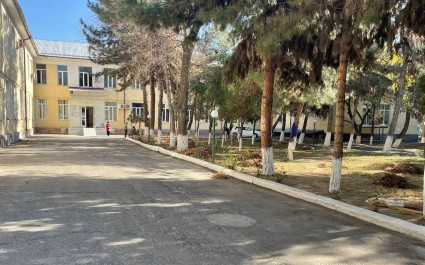The U.S. Centers for Disease Control and Prevention (CDC) launched a five-day Field Epidemiological Frontline Training Program (FETP) for 20 Uzbek epidemiologists from the Services for Sanitary and Epidemiological Well-being (SSEW) and 10 mentors from the Tashkent Medical Academy. The CDC FETP is a service-based training program for public health workers at all levels of the public health system, to improve the ability of health workers to conduct epidemiological investigations and respond to disease outbreaks.
Speaking at the event launch, Alan Meltzer, Deputy Chief of Mission at the U.S. Embassy in Tashkent said “COVID-19 is a stark reminder of the urgent need to expand and reinforce field epidemiology capacity for all countries, including Uzbekistan, in order to increase the timely detection and response to outbreaks and save lives.”
To successfully implement the FETP program in Uzbekistan, CDC will collaborate with Ministry of Health (MOH), Services for Sanitary and Epidemiological Well-Being (SSEW), and the Tashkent Medical Academy (TMA). The planned training will consist of a three-month on-the-job training module, which develops critical skills for epidemiologists working at the frontline of disease surveillance and outbreak response. The program aims to improve disease surveillance at the local level, focusing on improving disease detection, reporting, and response.
CDC will support the integration of the FETP Frontline program into the framework of the Tashkent Medical Academy to be further sustained by the Ministry. FETP graduates in Uzbekistan will reinforce the country’s capacity in timely detection and response to the COVID-19 outbreak, set up disease surveillance systems and contribute to the understanding of local communities’ experiences with disease.















